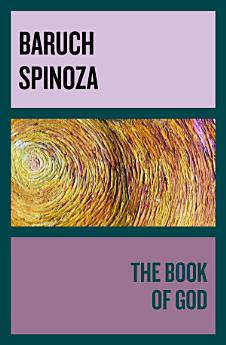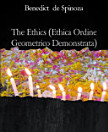The Book of God
ଡିସେମ୍ବର 2014 · Open Road Media
3.0star
2ଟି ସମୀକ୍ଷାreport
ଇବୁକ୍
125
ପୃଷ୍ଠାଗୁଡ଼ିକ
family_home
ଯୋଗ୍ୟ
info
reportରେଟିଂ ଓ ସମୀକ୍ଷାଗୁଡ଼ିକୁ ଯାଞ୍ଚ କରାଯାଇନାହିଁ ଅଧିକ ଜାଣନ୍ତୁ
ଏହି ଇବୁକ୍ ବିଷୟରେ
Translated by Dr. A. Wolf from the Dutch [version of the author's Tractatus de Deo et homine] and edited and with an introduction by Dagobert D. Runes.
Spinoza is today considered the Philosopher of Modern Times, as Aristotle was the Philosopher of Antiquity. In spite of which, he remains the best known and least read of the great thinkers.
The Book of God, one of his earliest works, came to light only a hundred years ago in two slightly varying Dutch manuscripts. Its youthful author lived in turbulent times, when the Western world was torn by civil and religious strife, and bullies, bigots and pseudo-prophets vied for the ear of a fearful people. While Europe was in an uproar over the right church, Spinoza was seeking the right God. This book is the first known report of his findings. Appearing like a draft for his later Ethics, it is a Guide for the Bewildered. Those who see in philosophy no more than an intellectual exercise will have no difficulty dismissing it. But those imbued with the longing for a better and freer life will find here a most rewarding fountain of faith.
Spinoza is today considered the Philosopher of Modern Times, as Aristotle was the Philosopher of Antiquity. In spite of which, he remains the best known and least read of the great thinkers.
The Book of God, one of his earliest works, came to light only a hundred years ago in two slightly varying Dutch manuscripts. Its youthful author lived in turbulent times, when the Western world was torn by civil and religious strife, and bullies, bigots and pseudo-prophets vied for the ear of a fearful people. While Europe was in an uproar over the right church, Spinoza was seeking the right God. This book is the first known report of his findings. Appearing like a draft for his later Ethics, it is a Guide for the Bewildered. Those who see in philosophy no more than an intellectual exercise will have no difficulty dismissing it. But those imbued with the longing for a better and freer life will find here a most rewarding fountain of faith.
ମୂଲ୍ୟାଙ୍କନ ଓ ସମୀକ୍ଷା
3.0
2ଟି ସମୀକ୍ଷା
ଲେଖକଙ୍କ ବିଷୟରେ
Baruch or Benedict de Spinoza was a Dutch philosopher of Portuguese Jewish origin. Born Benedito de Espinosa; 24 November 1632 – 21 February 1677, in Amsterdam, the son of Portuguese Jewish refugees who had fled from the persecution of the Spanish Inquisition. Although reared in the Jewish community, he rebelled against its religious views and practices, and at the age of 24 was formally excommunicated from the Portuguese-Spanish Synagogue of Amsterdam. He was thus effectively cast out of the Jewish world and joined a group of nonconfessional Christians (although he never became a Christian), the Collegiants, who professed no creeds or practices but shared a spiritual brotherhood. He was also involved with the Quaker mission in Amsterdam. Spinoza eventually settled in The Hague, where he lived quietly, studying philosophy, science, and theology, discussing his ideas with a small circle of independent thinkers, and earning his living as a lens grinder. He corresponded with some of the leading philosophers and scientists of his time and was visited by Leibniz and many others. He is said to have refused offers to teach at Heidelberg or to be court philosopher for the Prince of Conde. During his lifetime he published only two works, The Principles of Descartes' Philosophy (1666) and the Theological Political Tractatus (1670). In the first his own theory began to emerge as the consistent consequence of that of Descartes. In the second, he gave his reasons for rejecting the claims of religious knowledge and elaborated his theory of the independence of the state from all religious factions. It was only after his death (probably caused by consumption resulting from glass dust), that his major work, the Ethics, appeared in his Opera Posthuma. This work, in which he opposed Descartes' mind-body dualism, presented the full metaphysical basis of his pantheistic view. Today, he is considered one of the great rationalists of 17th-century philosophy, laying the groundwork for the 18th century Enlightenment and modern biblical criticism. Spinoza's influence on the Enlightenment, on the Romantic Age, and on modern secularism has been of extreme importance. Dr. Dagobert D. Runes, the founder of the Philosophical Library, and Albert Einstein were not only close friends and colleagues; they both regarded Spinoza as the greatest of modern philosophers.
ଏହି ଇବୁକ୍କୁ ମୂଲ୍ୟାଙ୍କନ କରନ୍ତୁ
ଆପଣ କଣ ଭାବୁଛନ୍ତି ତାହା ଆମକୁ ଜଣାନ୍ତୁ।
ପଢ଼ିବା ପାଇଁ ତଥ୍ୟ
ସ୍ମାର୍ଟଫୋନ ଓ ଟାବଲେଟ
Google Play Books ଆପ୍କୁ, Android ଓ iPad/iPhone ପାଇଁ ଇନଷ୍ଟଲ୍ କରନ୍ତୁ। ଏହା ସ୍ଵଚାଳିତ ଭାବେ ଆପଣଙ୍କ ଆକାଉଣ୍ଟରେ ସିଙ୍କ ହୋଇଯିବ ଏବଂ ଆପଣ ଯେଉଁଠି ଥାଆନ୍ତୁ ନା କାହିଁକି ଆନଲାଇନ୍ କିମ୍ବା ଅଫଲାଇନ୍ରେ ପଢ଼ିବା ପାଇଁ ଅନୁମତି ଦେବ।
ଲାପଟପ ଓ କମ୍ପ୍ୟୁଟର
ନିଜର କମ୍ପ୍ୟୁଟର୍ରେ ଥିବା ୱେବ୍ ବ୍ରାଉଜର୍କୁ ବ୍ୟବହାର କରି Google Playରୁ କିଣିଥିବା ଅଡିଓବୁକ୍କୁ ଆପଣ ଶୁଣିପାରିବେ।
ଇ-ରିଡର୍ ଓ ଅନ୍ୟ ଡିଭାଇସ୍ଗୁଡ଼ିକ
Kobo eReaders ପରି e-ink ଡିଭାଇସଗୁଡ଼ିକରେ ପଢ଼ିବା ପାଇଁ, ଆପଣଙ୍କୁ ଏକ ଫାଇଲ ଡାଉନଲୋଡ କରି ଏହାକୁ ଆପଣଙ୍କ ଡିଭାଇସକୁ ଟ୍ରାନ୍ସଫର କରିବାକୁ ହେବ। ସମର୍ଥିତ eReadersକୁ ଫାଇଲଗୁଡ଼ିକ ଟ୍ରାନ୍ସଫର କରିବା ପାଇଁ ସହାୟତା କେନ୍ଦ୍ରରେ ଥିବା ସବିଶେଷ ନିର୍ଦ୍ଦେଶାବଳୀକୁ ଅନୁସରଣ କରନ୍ତୁ।







